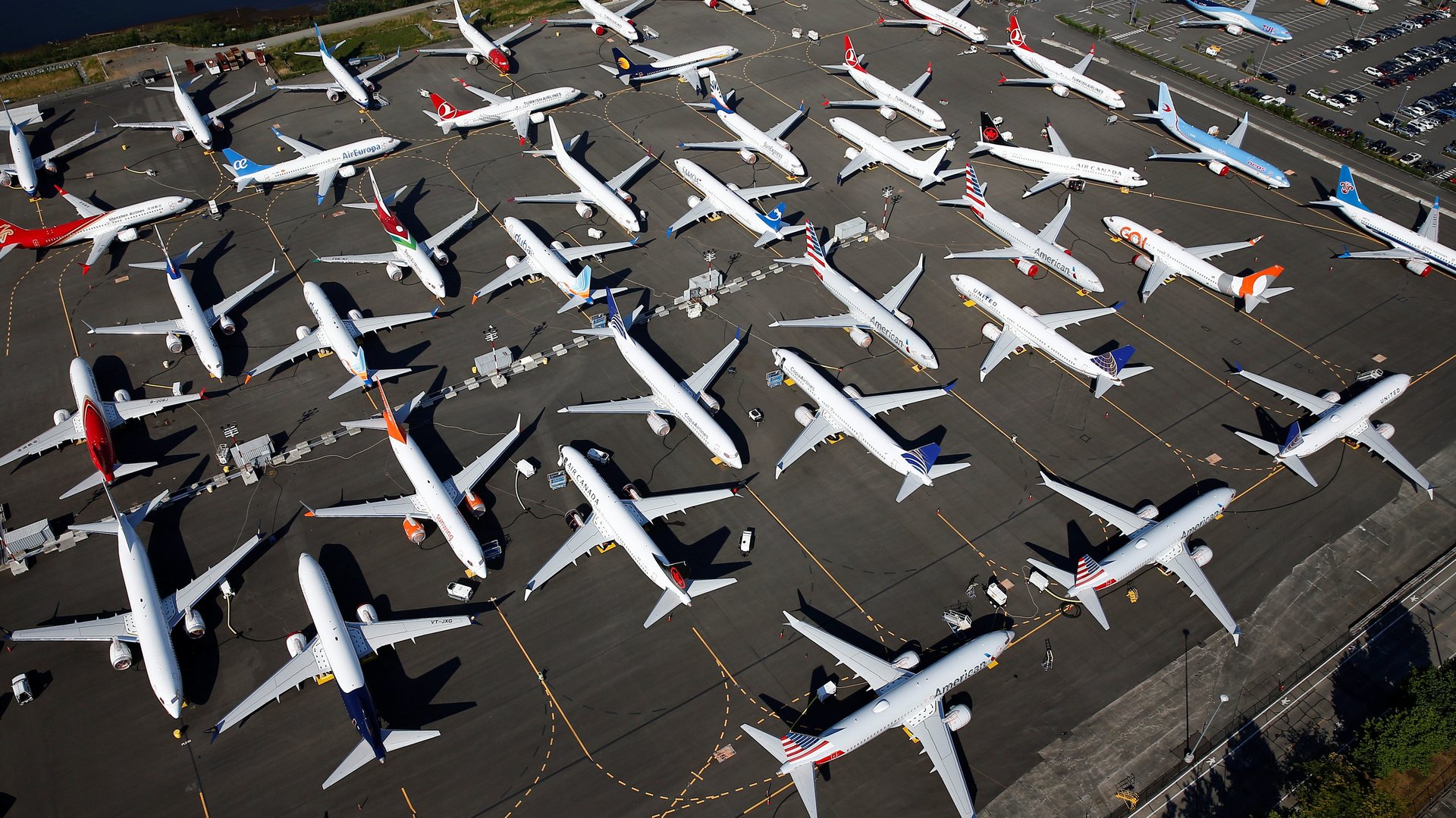Boeing just dealt a blow to the US economy in 2020
Boeing just announced a move that will ripple negatively through the US economy in the new year.


Boeing just announced a move that will ripple negatively through the US economy in the new year.
The company yesterday (Dec. 16) said it would halt production of the troubled 737 Max starting in January because the plane’s return to service has been delayed. The company had been hoping that the plane, which was grounded globally after its second deadly crash in March, would resume flying this year. But the US regulator, the Federal Aviation Administration (FAA), had signaled in recent months that this was not going to happen. Major US airlines have removed the model from their schedules until March and April of next year, by which time the model will have been grounded for over a year.
The plane, which has only been in use since 2017, first crashed in Indonesia in October last year, killing 189 people. The second crash, in Ethiopia, killed 157 people. The aviation giant has continued to build the planes since the grounding, at a reduced rate of 42 a month since April, and now has 400 planes in storage.
“We believe this decision is least disruptive to maintaining long-term production system and supply chain health. This decision is driven by a number of factors, including the extension of certification into 2020, the uncertainty about the timing and conditions of return to service and global training approvals, and the importance of ensuring that we can prioritize the delivery of stored aircraft,” Boeing said.
Boeing says it doesn’t expect the move to result in furloughs or layoffs at this time—737 Max employees will be reassigned other teams—buy said it would deliver an update in late January. Meanwhile, its weight in the US economy means there will be a knock-on impact on everything from airlines to parts manufacturers. It is the country’s largest exporter, and its supply chain includes hundreds of firms and tens of thousands of workers.
When Boeing cut production in April, economists estimated that it took around a quarter of a percentage point off (paywall) economic growth for the second quarter. The White House said the impact was even larger. The grounding and reduced production has impacted, for example, the cash flow of GE Aviation, which makes the engines for the plane together with France’s Safran. GE Aviation said the hit would be roughly $1.4 billion this year. Kansas-based parts maker Spirit AeroSystems, which relies on Boeing for 80% of its revenue, has already enacted cost-cutting measures, like a hiring freeze, reduced overtime, and reduced use of contractors.
The impact of a total production halt will likely be much larger—and Boeing will have to compensate airlines further. Boeing’s share movements also have an outsize effect on the Dow Jones Industrial Average, where it commands a percentage weighting of more than 11%.
The process of re-certifying the plane has been complicated by leaks of information suggesting Boeing may have been aware in the testing process of problems with the flight system implicated in both crashes. The FAA is also under scrutiny over how it handled the initial certification and training recommendations, which means there’s no certainty on when the plane will resume flying.